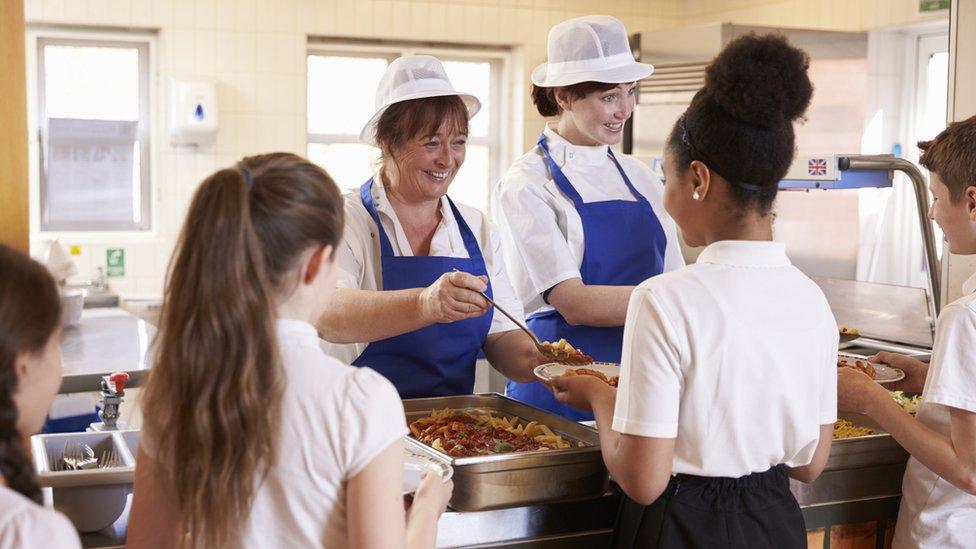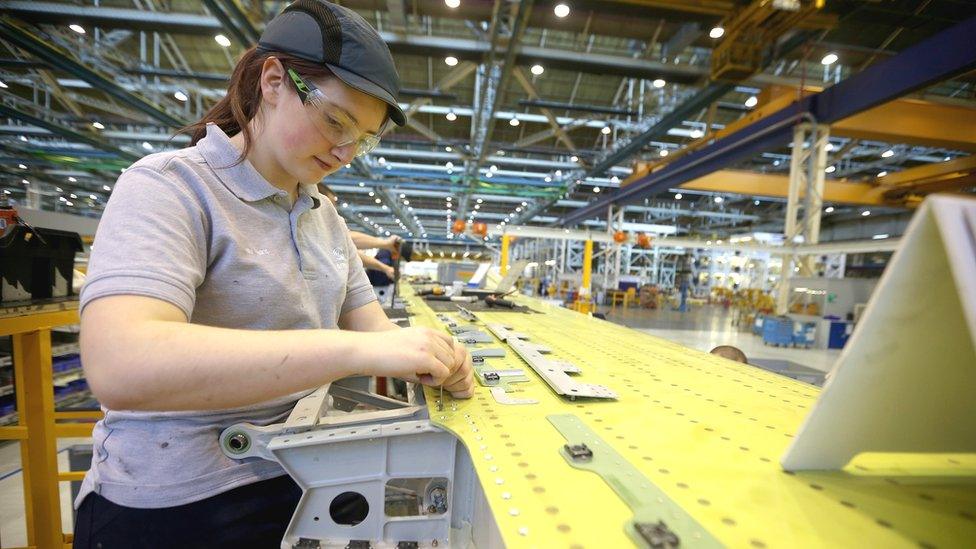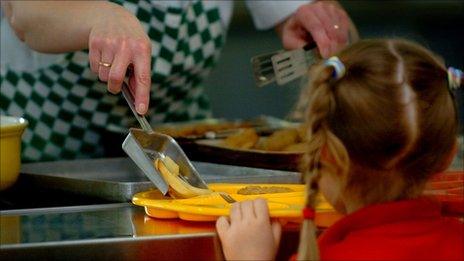Child hunger fears over patchy free school meal systems
- Published

Different systems are in place for issuing free school meals across Wales
Children can face going hungry as some councils are taking too long to roll-out fingerprint ID systems for free school meals, an AM has warned.
Close to 70,000 pupils were eligible for the free lunches across Wales in the 2015-16 academic year.
But AM Joyce Watson said inconsistent and out-of-date systems across schools were leading to children being bullied.
Some councils told BBC Wales they were introducing fingerprint IDs for lunches.
Across Wales' 22 local authorities, different systems are in place for issuing free school meals, including fobs, cashless cards, online payments and biometrics.
Despite calls in 2014 for all councils to introduce fingerprint IDs or biometrics, many are still yet to roll-out the systems.
Labour AM for Mid and West Wales, Ms Watson, said councils were taking too long to implement the systems, which would help prevent children from poorer families being bullied.
"I'm really concerned about young people being stigmatised," she said. "We are now in a position where a lot of families are using food banks."
"If young people are not taking up the offer because the system currently singles them out, when are they eating? Their families at home are struggling, in work poverty is a big issue now."

The average uptake for free school meals in Welsh secondary schools is below the UK average
Ms Watson's office carried out research into the systems back in 2014, highlighting issues, including the selling of tokens and a lack of take-up due to stigmatism.
A Wales-wide system, which all councils buy into, would help reduce budget costs and bring consistency across the country, she added.
"I just think councils really need to think about moving as quickly forward on this as they can," she said.
"There may be many reasons why this hasn't happened. Budgets are probably the main reason but this is a problem for our children.
"We should never put children in that position. It is not their fault - and it is not the fault of their families - that they find themselves in this position."
In Welsh secondary schools, average uptake for free school meals is 61.74% - below the UK average of 64.92% - according to figures from the Association for Public Service Excellence (APSE).
Rob Bailey, of APSE, said while cashless systems go some way to removing stigma, other factors including peer pressure meant many chose not to eat them.

Some of the current arrangements across Wales
All local authorities told BBC Wales there was no way of pupils being identified as receiving free school meals in dining rooms
Fingerprint IDs are not in place in any primary schools, nor are there plans to introduce it
Biometrics were introduced in four Ceredigion schools in autumn 2016, with the authority considering a wider roll-out once the pilot has been in place for a full academic year
Merthyr uses a cashless card system in secondary schools, the council has no plans to introduce biometrics
In Wrexham, all high schools use biometric systems and 28 out of 60 primary schools operate a cashless system
In Flintshire and Pembrokeshire, all council-managed secondary schools use biometrics. Pembrokeshire is rolling out cashless payment options to primary schools
Two schools in Blaenau Gwent use fingerprint systems, cards are in the process of being phased out. Pin or photo recognition will be in place in all primary schools by the end of 2017
Eleven out of 12 Carmarthenshire high schools use biometrics, the council is due to start introducing online payments for parents in the coming months
Cashless cards and fobs are used in Vale of Glamorgan

Issues around free school meals were highlighted at a recent poverty conference near Cardiff last month.
A Caerphilly Youth Forum representative said young people in one school were being left hungry as cards for the free meals were not being loaded with cash until lunchtime.

Close to 70,000 pupils were eligible for the free lunches across Wales in the 2015-16 academic year
She said many were not eating breakfast due to time restraints or their parents not being able to afford it, leaving them "starving".
Children's Commissioner Sally Holland told the conference she would look into the issue, but Caerphilly council said the IT software system had been recently upgraded to load cash on to the cards automatically first thing in the morning.
Teachers and charities have also warned children in poorer areas may go hungry without access to the school meals during the summer holidays.
A National Union of Teachers' spokesman said teachers often noticed pupils were thinner and less mentally alert after the summer.
Sarah Crawley, director of Barnardo's Cymru, said the charity was increasingly seeing families using food banks and the school holidays were an especially tough time.
- Published22 June 2017

- Published4 April 2017

- Published8 April 2016

- Published18 June 2015

- Published21 June 2011
